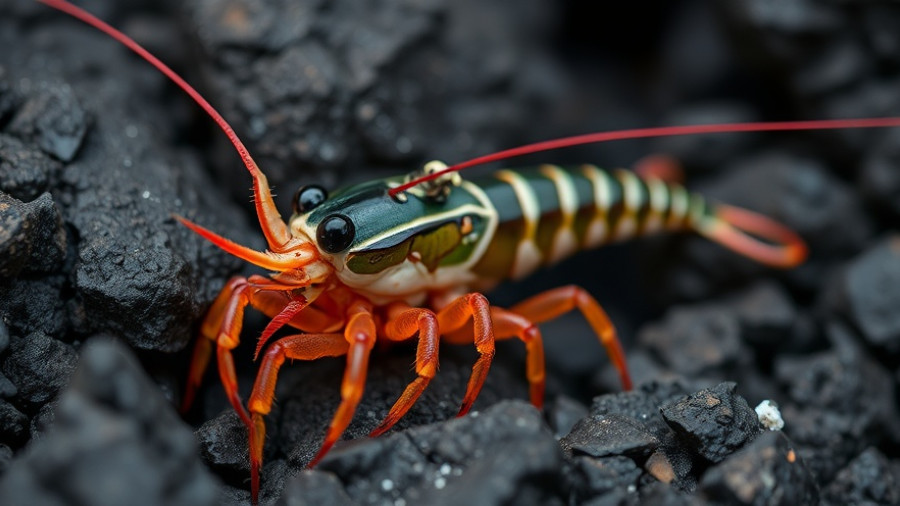
Antarctic Krill: A Tiny Creature with Massive Impact
Antarctic krill, Euphausia superba, may be small, but their ecological significance is monumental. This shrimp-like crustacean, no bigger than a paperclip, serves as the foundational element of a fragile ecosystem in the Southern Ocean. They are the primary food source for a range of species, including whales, seals, and penguins, making them vital to the health of marine life in this frigid region.
The Diplomatic Web of Krill Fishing
Recently, a diplomatic row erupted over krill fishing, sparked by Norway's controversial proposal to nearly double the krill catch limit from 620,000 to approximately 1.2 million tonnes a year. This escalation has raised alarm bells among conservationists and scientists, who fear that such measures could lead to ecological collapse, exacerbating the impacts of climate change. Norway's push coincided with existing tensions within the Commission for the Conservation of Antarctic Marine Living Resources (CCAMLR), which has struggled for years to establish marine protected areas (MPAs) amidst vetoes from Russia and China.
The Importance of Antarctic Krill for Wildlife and Climate
What makes krill so crucial? They not only support a diverse range of species, but they are also indispensable for climate regulation. Antarctic krill can absorb up to 12 billion tonnes of carbon annually from the atmosphere. Their role in the food web means that a decline in krill populations may disrupt the entire marine ecosystem. Voices like that of renowned documentary filmmaker David Attenborough emphasize that the potential overfishing of krill could destabilize this delicate balance.
Conservationists Raise Their Voices
A growing coalition of scientists and activists is raising their voices, calling for immediate action from CCAMLR to halt krill fishing altogether in the Southern Ocean. High-profile advocates, including actor Benedict Cumberbatch and oceanographer Sylvia Earle, have joined the cause, stressing the urgent need for regulation that prioritizes wildlife over commercial interests.
Future of Krill Fishing and Its Challenges
The challenges surrounding krill fishing are daunting. As countries like China and Russia continue to expand their investments in the krill industry, conservation efforts appear to be lagging. Scientists warn that future rises in krill fishing could have devastating effects on the Antarctic ecosystem. A recent study revealed that as trawlers continue to exploit the same feeding grounds that marine mammals and seabirds rely on, the impacts of competition for food are becoming increasingly pronounced, heightening the risk of malnutrition among these animals.
What Can We Do?
Understanding the complexities of krill fishing is vital for all of us. Engaging in grassroots initiatives that promote conservation and raising awareness of the ecological significance of krill can make a difference. Involving local communities in discussions relating to wildlife protection will fortify the efforts to aid these small yet crucial creatures.
Conclusion: Join the Call for Conservation
As we contemplate the implications of krill fishing on our planet's health, the call to action is clear. It’s time to advocate for sustainable practices and protective measures that safeguard the Antarctic ecosystem. Our voices can drive change. Let’s join forces in support of wildlife conservation, ensuring that the delicate balance of our oceans is preserved for generations to come.
 Add Row
Add Row  Add
Add 




Write A Comment